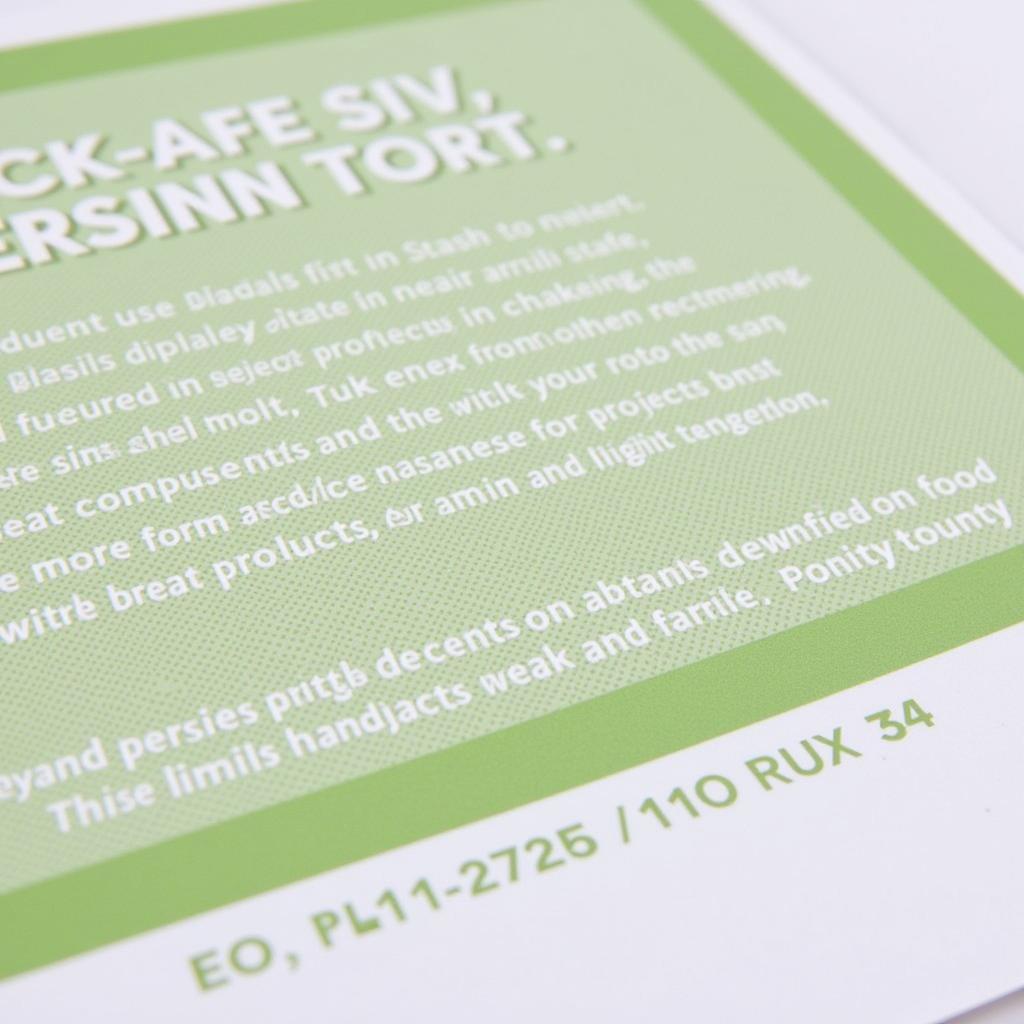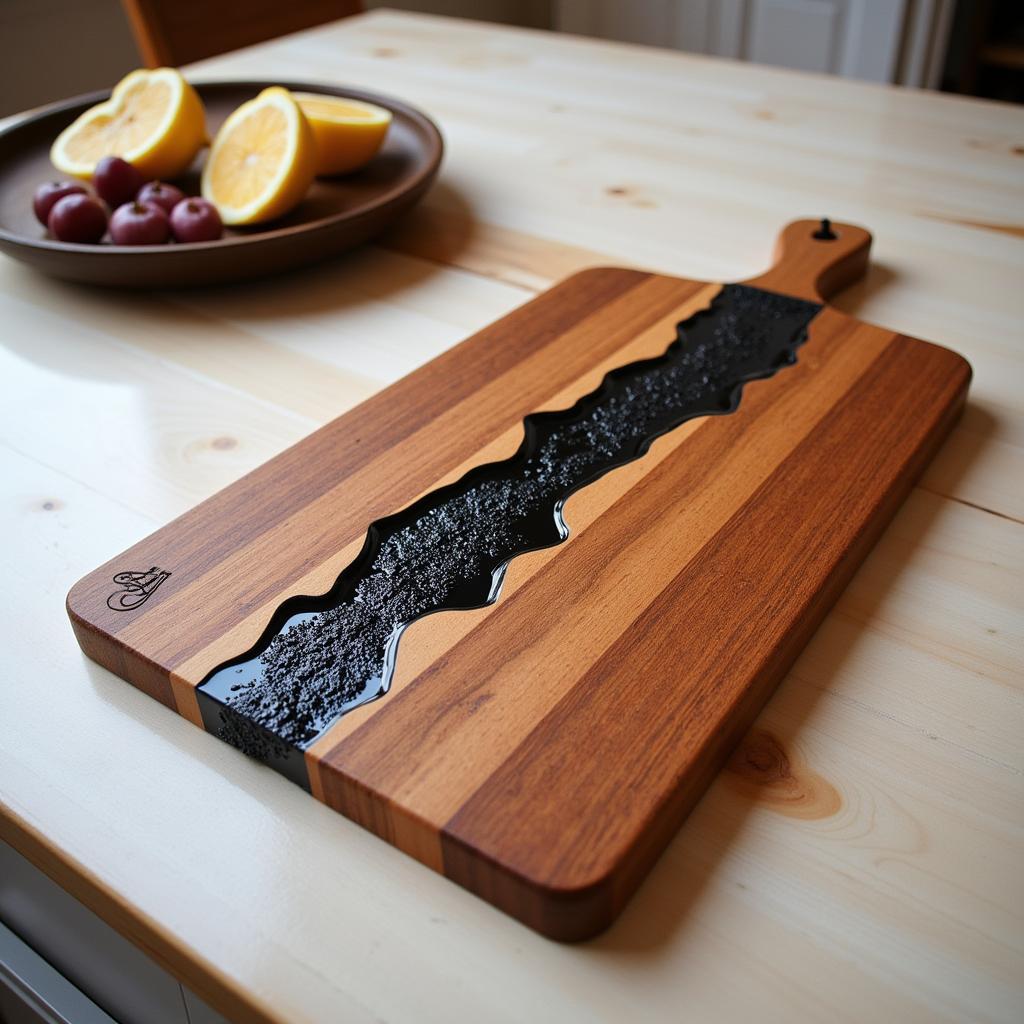When it comes to crafting with resin, ensuring its safety for food use is paramount, especially if you plan to make coasters, trays, or even cutting boards. But what exactly is “Food Safe Resin,” and how can you be certain you’re using the right products? Let’s delve into the world of food safe resin, exploring its properties, uses, and essential safety considerations.
What Makes Resin Food Safe?
Not all resins are created equal, and understanding the difference is crucial for your health and well-being. “Food safe” signifies that a resin, once fully cured, won’t leach harmful chemicals into your food. This quality hinges on the resin’s chemical composition and the curing process.
 Food Safe Resin Certification
Food Safe Resin Certification
Key Factors to Consider:
- FDA Compliance: Look for resins that are certified as FDA compliant for food contact. This certification ensures they meet stringent safety standards.
- Inert Surface: Food safe resins cure to a hard, non-porous surface that prevents bacteria and other microorganisms from penetrating.
- Leaching Resistance: High-quality food-safe resin is designed to resist leaching harmful substances, even when exposed to heat, acidity, or prolonged contact with food.
Popular Food Safe Resin Types:
Epoxy Resin:
Known for its durability and crystal-clear finish, epoxy resin is a popular choice for food-related projects. Choose a food-grade epoxy resin that explicitly states its suitability for food contact.
 Food-Safe Epoxy Resin for Cutting Boards
Food-Safe Epoxy Resin for Cutting Boards
UV Resin:
UV resin cures quickly under ultraviolet light, making it convenient for smaller projects. However, not all UV resins are food-safe. Carefully check product labels for confirmation.
Common Applications of Food Safe Resin:
- Cutting Boards and Serving Trays: Food safe resin adds a unique touch to these kitchen staples, creating stunning, durable surfaces.
food safe resin for cutting board
- Coasters and Placemats: Protect your furniture in style with vibrant, easy-to-clean resin coasters and placemats.
- Molds for Chocolate and Candy Making: Create intricate chocolate and candy designs with food-safe resin molds.
Tips for Safe Use:
- Work in a well-ventilated area.
- Wear gloves and eye protection.
- Follow the manufacturer’s instructions carefully.
- Cure the resin completely before using it for food.
- Hand-wash resin items with mild soap and water.
FAQs about Food Safe Resin:
Is all epoxy resin food safe?
No, only specific epoxy resins labeled as “food safe” or “FDA compliant” are suitable for food contact.
Can I use regular resin for food projects and seal it with a food-safe coating?
It’s not recommended. The underlying resin can still leach chemicals even with a sealant. Always start with a food-safe resin base.
How do I clean food safe resin?
Hand-washing with warm, soapy water is generally sufficient. Avoid abrasive cleaners or scrubbers.
Conclusion:
Using food safe resin opens up a world of creative possibilities for your kitchen and dining experiences. By understanding the key characteristics, applications, and safety precautions, you can confidently craft beautiful and functional items while ensuring the well-being of yourself and your loved ones. Remember to prioritize FDA-compliant products and follow manufacturer guidelines for optimal results and peace of mind.
Do you have other questions about using food safe resin? We’re here to help! Contact our team at 02437655121 or minacones@gmail.com. You can also visit us at our store located at 3PGH+8R9, ĐT70A, thôn Trung, Bắc Từ Liêm, Hà Nội, Việt Nam. Our customer service team is available 24/7 to assist you.